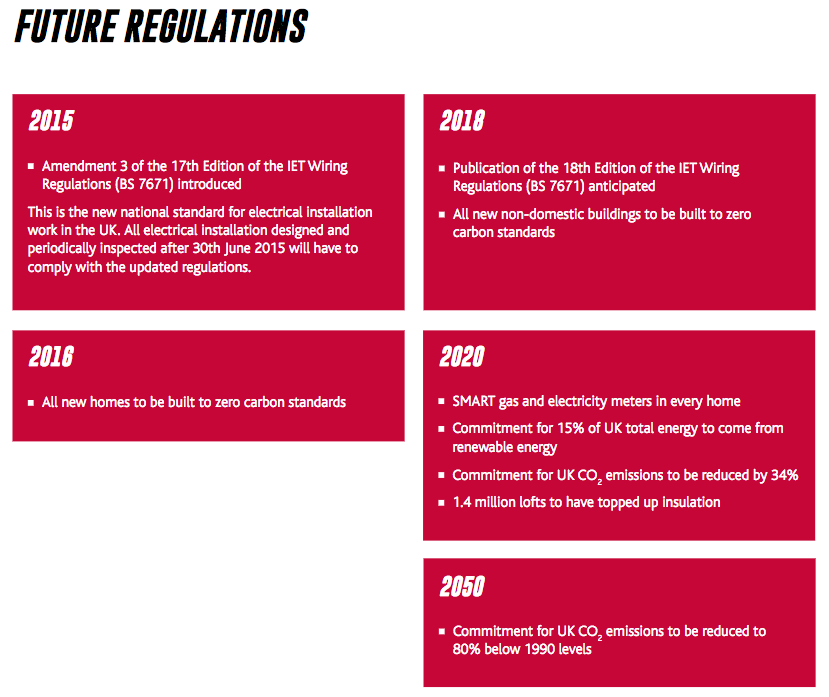A short guide on electrical Safety and energy Saving options for Small Businesses which own or rent commercial Premises

Current legal requirements - electrical safety regulations
Jersey
Electrical contractors undertaking work in Jersey since 1 July 2007 have been required to notify all electrical installation work irrespective of the intended use of the system i.e. domestic, commercial or industrial, to the local authority Building Control Department. NICEIC approved Contractors and those on the Register of Electrical Inspectors and Testers (competent persons scheme) conducting work in Jersey can notify their work via the NICEIC.
Isle of Man
Anybody undertaking electrical installation work in domestic properties in the Isle of Man must comply with the Building Regulations 2014, schedule 1, Part P (Electrical safety) of the Building Regulations 2014, whether they are a professional or a homeowner. Those who do not comply are committing a criminal offence.
Electricity at Work Regulations 1989
The purpose of the Regulations, which came into force on 1st april 1990, is to require precautions to be taken against the risk of death or personal injury from electricity in work activities. The Regulations are made under the Health and safety at Work etc act 1974, which imposes duties on employers, the self-employed and on employees (all referred to as ‘dutyholders’) in respect of systems, electrical equipment and conductors, and in respect of work activities on or near electrical equipment.
Key industry developments
The following developmens will have a bearing on the electrical sector and energy industry for commercial buildings
SMART Meters
These are the next generation of energy meter, which will record the level of electricity and gas consumption in a building and communicate it back to the energy supplier automatically. This enables the energy supplier to obtain a regular and accurate reading for billing purposes and also allows the occupant to monitor and reduce their energy usage. It will also allow for the level of demand for electricity to be managed and for loads to be balanced. The national roll-out of smart meters started in 2014.
Energy Efficiency
The UK spends more per head on heating its buildings than sweden, despite the fact that sweden experiences much longer and harsher winters. This is largely due to the UK having some of the oldest building stock and poorest insulation in Europe. Electricity bills increased by 32% between 2007 and 2012 and housing is estimated to account for 27% of UK CO2 emissions. Electrical contractors can advise occupants on some of the energy-saving measures available to reduce their electricity bills and environmental impacts, such as through the installation of low energy lighting.
Renewable Energy
Renewable energy comes from natural resources such as sunlight, wind, rain, tides and geothermal heat, all of which can be naturally replenished. The long-term adoption of renewable energy in UK buildings will increase steadily over the next decade enabling occupants to generate all or some of their own energy (electricity and/or heating). Electricity-generating renewable technologies include solar photovoltaic (PV), micro wind turbines and micro hydro water power. Heat-generating technologies include solar thermal hot water, biomass boilers and heat pumps.

